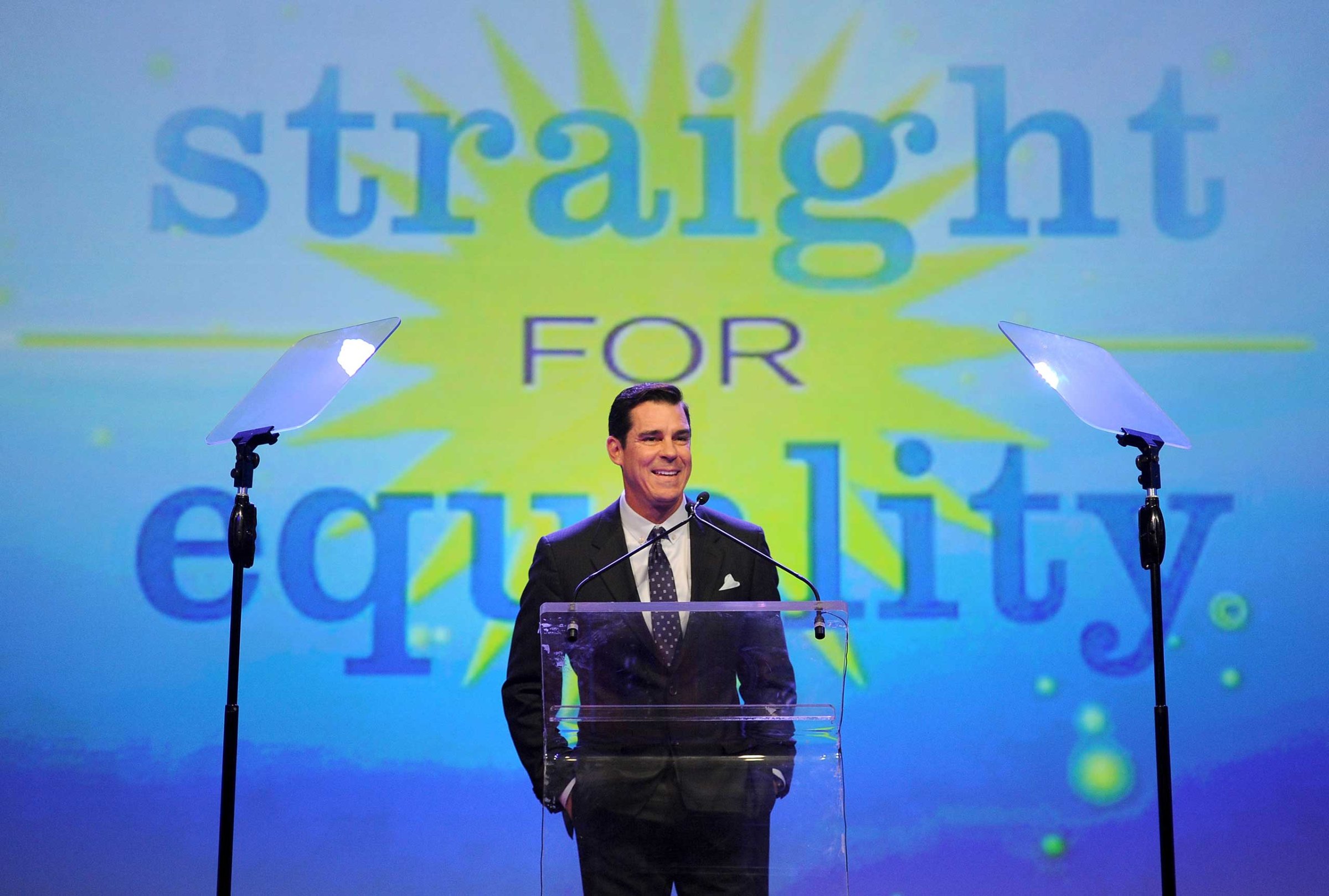
Today marks the 68th anniversary of the day Jackie Robinson ran onto the field as a member of the Brooklyn Dodgers and became the first African American to play in Major League Baseball. While I will never know what it was like to walk in his Hall of Fame footsteps, I find great inspiration to try and live up to his extraordinary example as a leader, teacher, and ambassador for our sport.
I’ll never forget how anxious I felt last summer as MLB Commissioner Bud Selig announced my name as the league’s first ambassador for inclusion. I had been away from baseball for a long time, and while I was prepared for the moment, I could feel many of the old fears returning from my days in the closet. Hearing those words from Commissioner Selig brought me full circle from my darkest days to one of hope and great determination.
I never thought I would ever be anything more than an anecdote to the sport. As a closeted player, I was consumed with fear that my fellow players would find out about me. I was living a completely secretive life. The sudden death of my partner on the eve of my last season in 1995 was the beginning of the end of my playing career. I walked out of the hospital at 7 a.m. with his clothes in a plastic bag, the only evidence of a three-year relationship. I was in a state of shock until I realized that I needed to be at Angel Stadium in less than four hours. I drove home, showered, and, like always, I went to work. However, a part of me died that day with Sam, and not believing I could talk to anyone about it was my greatest mistake. I remember writing his name on the inside of my cap, hoping for strength to get through that game.
My personal story broke in late 1999. I had no idea the kind of press it would attract, or how desperately my community was looking for leadership. It changed my perspective entirely. Since then, I’ve worked hard to be a strong role model. Baseball is finally ready to have a conversation about acceptance.
This past November, I was asked to speak to all 30 general managers at their annual offseason meeting. A dialogue was created that resulted in invitations from 16 different organizations. On Feb. 27 I began a journey around the country, making early morning presentations, sharing my personal story and talking about leadership, responsibility, and the message of acceptance to big-league clubs. I suited up and threw batting practice with the Mets, Tigers, and Phillies. I spoke to entire minor league systems, met with coaching staffs, front office personnel, and watched games with general managers.
It’s hard to describe what it feels like to be the only gay man (or perhaps only “openly” gay man) in a clubhouse. Few people realize that only two major league players in the 146-year history of baseball have ever admitted they were gay – Glenn Burke, who died in 1995, and myself. I was certain there would be judgment, but I also knew this was my job and my responsibility. As a player, my greatest fear was the thought of walking through the clubhouse with my secret revealed. Now after all this time, I was facing that old demon. Some mornings there were knots in my stomach, and I felt like an outsider. On the days it was toughest, I thought about Matthew Shepard, Tyler Clementi, Ronin Shimizu, and so many other youth who died without a voice. I quickly let go of my own self-consciousness and found strength knowing I was representing something much greater than me.
Baseball asked me to lead this conversation, and I knew that this is where it really starts – with our players. For me it’s simple: The message of inclusion will save lives. An accepting example from our players can influence today’s youth and turn bullies into leaders who take care of their teammates and classmates instead of discriminate, ridicule, or perpetuate hate against them.
A major league clubhouse is one of the most diverse environments in pro sports. Our players are young, come from many cultures, and speak several languages. Today’s athletes are under the microscope like never before, much of it self imposed by social media. It’s our responsibility to explain to players how expectations change once they put on that major-league uniform. We are just getting started, but we’re off to a great start.
After my long road trip this spring, I began to reflect on my return to the game and the irony of being back in baseball for exactly the same reason I walked away from it. Baseball changed the world 68 years ago, and in honor of its great history and its vision of the future, we are sending a message that is loud and clear: “Everyone is welcome.” How cool is that?
More Must-Reads from TIME
- Donald Trump Is TIME's 2024 Person of the Year
- Why We Chose Trump as Person of the Year
- Is Intermittent Fasting Good or Bad for You?
- The 100 Must-Read Books of 2024
- The 20 Best Christmas TV Episodes
- Column: If Optimism Feels Ridiculous Now, Try Hope
- The Future of Climate Action Is Trade Policy
- Merle Bombardieri Is Helping People Make the Baby Decision
Contact us at letters@time.com